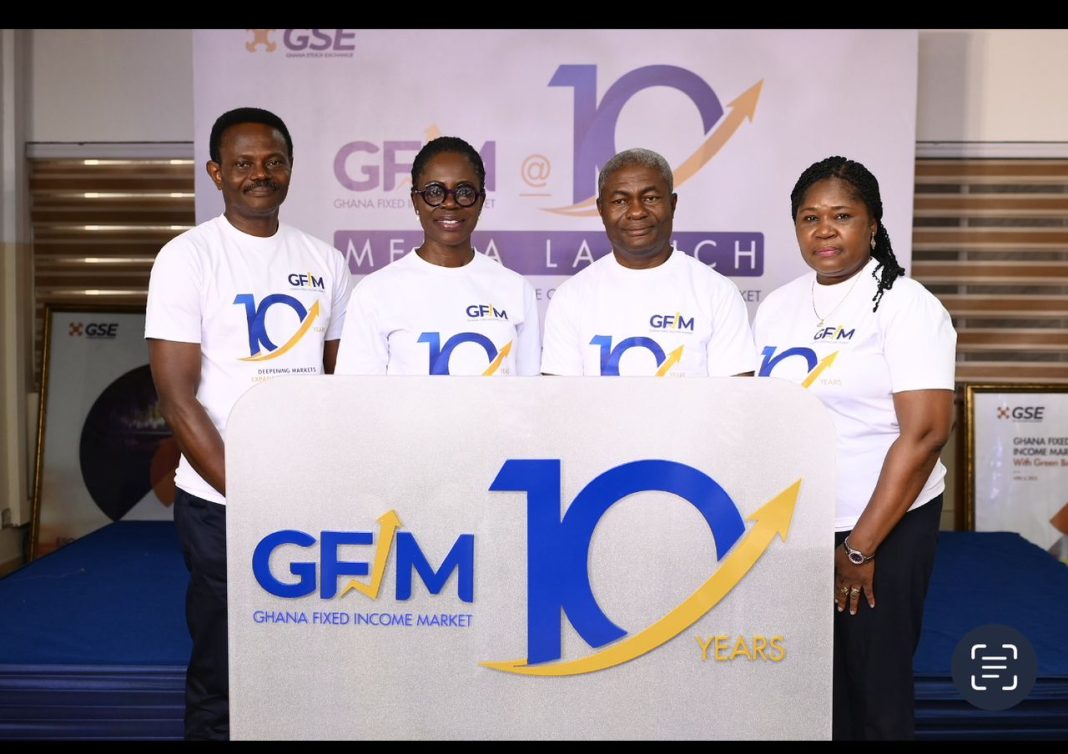The volume of securities traded on the Ghana Fixed Income Market (GFIM) has surpassed GH¢1 trillion since its inception, underscoring the market’s critical role in deepening Ghana’s capital market and financing economic growth.
Managing Director of the Ghana Stock Exchange (GSE), Abena Amoah, announced the milestone at the media launch of the GFIM’s 10th Anniversary Celebration in Accra on Wednesday, November 5, 2025.
Describing the market’s performance as “phenomenal,” Ms. Amoah noted that trading volumes have rebounded strongly in 2025, with over GH¢200 billion worth of securities traded between January and October alone — approaching pre–Domestic Debt Exchange Programme (DDEP) levels.
“From its humble beginnings in 2015, when GH¢5.2 billion in securities were traded between August and December, the market grew steadily, peaking at GH¢230 billion in 2022,” she said.
However, she recalled that the 2023 DDEP marked a major setback, as trading volumes plunged to GH¢98 billion, before recovering by 76% in 2024 to reach GH¢174 billion under Ghana’s IMF-supported economic programme.
“Our markets can serve as a barometer for the wider economy,” she added. “The rebound in fixed income trading reflects renewed investor confidence and macroeconomic stability.”
Ms. Amoah revealed that corporate issuers have so far raised more than GH¢24 billion through the GFIM, with tenors ranging from short-term commercial papers to 10-year bonds. The funds, she said, have been channelled into productive sectors of the economy — supporting small businesses, financing agriculture, and driving manufacturing.
Despite these achievements, the GSE boss acknowledged ongoing challenges such as macroeconomic uncertainty, limited corporate issuance, and the dominance of government securities on the market. Operational and settlement risks, she added, require continuous technological upgrades and alignment with international best practices.
Looking ahead, Ms. Amoah outlined four key priorities to shape the GFIM’s next decade:
• Deepening corporate market participation to attract more private-sector issuers.
• Expanding sustainable finance instruments, including green and social bonds.
• Regional integration under the AfCFTA framework.
• Leveraging fintech and blockchain to boost transparency and efficiency.
“We want to see 10 million Ghanaians — up from the current 2 million — owning securities accounts and actively trading through digital platforms,” Ms. Amoah said. “Our vision is to grow listed companies from seven to one hundred and encourage government to issue infrastructure bonds for roads, energy, schools, and hospitals.”
She further noted that the GSE’s long-term goal is to build a vibrant, trusted, and inclusive fixed income market capable of financing Ghana’s development priorities in partnership with both public and private sector stakeholders.
